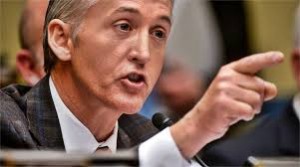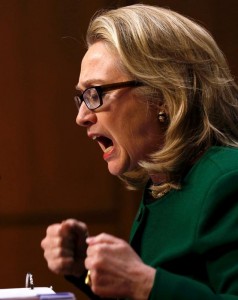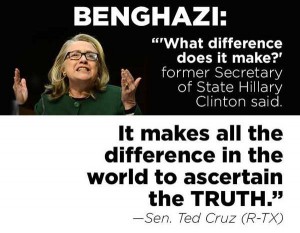On March 28, 2012, U. S. Ambassador to Libya Gene Cretz sent a cable to then Secretary of State Hillary Clinton requesting additional security assets. The response, bearing Clinton’s signature, while acknowledging his request, instead articulates a plan to scale back security for the U. S. Mission in Libya, including the Benghazi Mission. – Source: INTERIM PROGRESS REPORT for the Members of the Republican Conference on the Events Surrounding the September 11, 2012 Terrorist Attack in Benghazi, Libya

Rep. Trey Gowdy will chair the House select committee on Benghazi that gets underway on Wednesday. (LibertyNews.com)
In the two years following the attack, Congressional hearings and media reports have, for the most part, concentrated on the night of the attack. They questioned whether we could have dispatched air assets in time, if there was a stand-down ordered and if so who ordered it?
While answers to those questions are important, my effort since that fateful night has focused on the failure to provide proper security despite five months of warnings. I firmly believe Hillary Clinton is clearly responsible for placing Ambassador Chris Stevens and other Americans in jeopardy not only that night but in the preceding months.
An Accountability Review Board, led by former Ambassador Thomas Pickering and Admiral Michael Mullen, blamed “systemic failures” that left the compound inadequately protected. It also pointed to “leadership and management deficiencies at senior levels” without including Secretary Clinton. Remember, the ARB did not question Clinton and did not visit the Benghazi site.
Between July 2011 and July 2012 there were 50 security events in Benghazi. In April 2012 a disgruntled Libyan contract guard threw a small improvised explosive device over the perimeter wall. That was followed in June when another IED blew a hole in the wall. Printed handbills warned of future attacks.

Hillary Clinton denies seeing requests for additional security in Benghazi, but the record reveals that she acknowledged seeing one. (KevinLamarque/Reuters)
While the British Embassy, the United Nations and the Red Cross withdrew their personnel from Benghazi in light of the increased terrorism, our Benghazi compound was forced to rely on less security.
On June 7, 2012, the State Department denied Ambassador Stevens’ request that the teams Clinton earlier ordered removed be permitted to stay. On July 9, 2012, after Deputy Assistant Secretary for Diplomatic Security Lamb strongly informed the Embassy in Tripoli to not make a formal request to aid Benghazi, Ambassador Stevens responded with a cable that stressed the security conditions did not warrant a security drawdown.
Yet the month following, the State Department warned against travelling to Libya, stating the “Inter-militia conflict can erupt at any time or any place.”
While appearing before the House Foreign Affairs Committee on January 23, 2013, Clinton said, “I have made it very clear that the security cables did no come to my attention or above the assistant secretary level.” However, she earlier acknowledged a security request made on April 19, 2012. Which is it?
Let the hearings begin, in memory of Chris Stevens, Sean Smith, Tyrone Woods and Glen Doherty.






